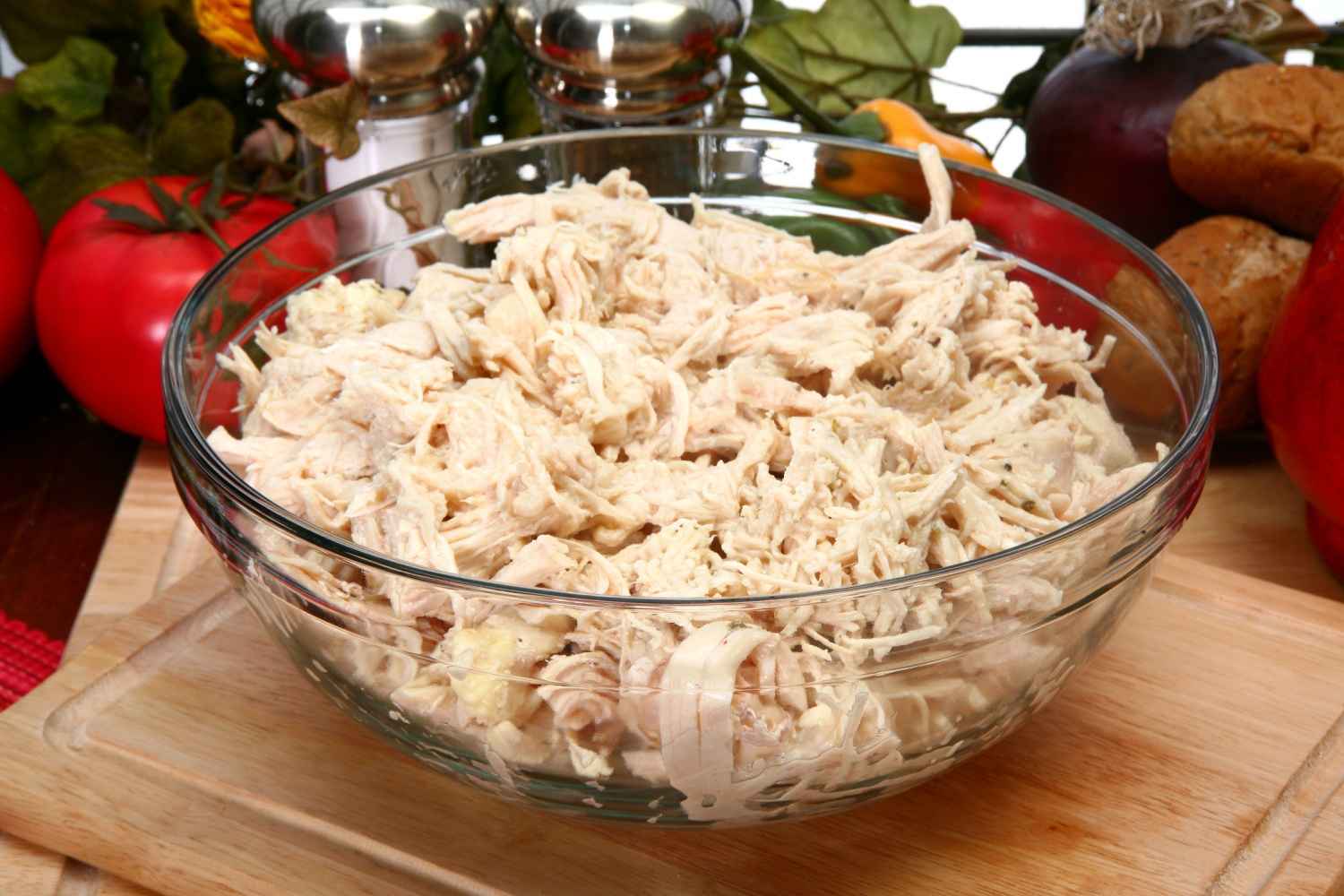
As your baby grows, the nutritional requirements of the body also increase. Mostly for the first six months, their primary source of nutrition is breastmilk or formula under the supervision of the pediatrician. Thereafter vegetable and fruit purees are gradually introduced to supplement growth. However, the protein and iron needs of the body may not be adequately met just by these purees. This is where many parents raise the query “When can I give meat to baby?”.
As your baby starts eating other foods, they absorb less iron from breast milk. Vegetarian counterparts need to find alternate sources to meet these demands. Read below to know more everything about incorporating meat into your baby’s diet.
In This Article
- When Can I Give Meat To My Baby?
- Which Meat Should I Start With?
- What Meats to Avoid For Babies?
- How Should I Cook Meat For My Baby?
- How To Cook Meat For a 6-Month-Old
- How To Cook Meat For a 9 Month Old
- How To Cook Meat For 12 Months And Up
- Top 9 Tips To Introduce Meat To Baby
- Health Benefits Of Meat for Babies
- Are There Any Side Effects of Introducing Meat to Babies
- Precautions to Take When Giving Meat to Babies
- FAQs
When Can I Give Meat To My Baby?
After six months of age, once your baby has started using semi-solids such as mashed vegetables and fruits, you can start introducing them to pureed meat with a very thin, smooth texture (1). Usually, this is somewhere between 7-10 months. Your baby has not developed molars yet, so you need to puree meat so that it is easily swallowed by the baby.
Now pureeing meat may have a grainy texture which your little one may not like. If your baby displays an aversion to food after adding meat to it, then you should perhaps wait for a few days and then try giving it again. However, it is always better to follow the three-day rule when introducing any new foods to the baby. The introduction of meat to the baby is generally in the form of chicken or turkey, and red meats follow later after the molars sprout up.
You need to stick to one meat at a time, say, chicken, and puree it along with your baby’s favorite meal. Then gradually increase the content of chicken in it and with time, your baby will be able to enjoy chicken on its own.
Which Meat Should I Start With?

Meat is high in protein, iron, zinc, and vitamin B12 (2) all of which help babies grow and develop faster. To expose babies to new flavors and textures, serve a variety of meat dishes:
- Purees, stocks, and soups
- Mutton keema,
- Lamb chops and nuggets
- Kebabs and meatballs formed into finger-sized logs instead of balls
- Finger-long strips or thin slices of meat
- Mutton curry
- Beef briskets
What Meats to Avoid For Babies?
The World Health Organization recommended that newborns start eating solid meals at 6 months of age to supplement breastfeeding, with meat commonly postponed until 7 to 10 months (3).
Being a parent, you must know what is best for your little one during their developmental years. To keep safe, consider the following suggestions.
- Avoid store-bought sushi or any raw meat.
- Avoid Refrigerated meat spreads.
- Prioritize healthy and locally sourced meats, for the best nutrition.
- Cook over medium heat until the meat is soft, well-cooked, and no longer pink.
- Choose lean portions of meat that have been completely cooked, to avoid potential dangers.
- Certain meats, such as shellfish, should be avoided because of potential allergies and health concerns.
How Should I Cook Meat For My Baby?

Meats can be difficult to digest for the baby when compared to fruits and vegetables (4). To improve digestibility, it is necessary to break the fibers and connective tissues in the meat by cooking it thoroughly. Thus, no matter what meat you select for your baby, it should be thoroughly cooked.
Also make sure it is tender, without any bones, and moist. Slow cooking preserves the juices of the meat which enhances the flavor and is adequately cooked as well. Simply pop in a ton of veggies and woohoo! Your baby will be fed with a nutritional feast! It’s best to puree the meat when introducing it to your baby’s diet.
As your baby grows, you may give him tiny nibbles and later progress on to finger foods. Whether it’s fresh or frozen meat, first wash it thoroughly, cut it into small pieces, grind it in a mixer, and then cook. You may cook it with vegetables, boil it, or add it to mash. Some mums like to add potatoes or mashed carrots to meat as it keeps the puree smooth.
How To Cook Meat For a 6-Month-Old
If your baby is 6 months old, they are still learning to adapt to solids. Hence, introducing meat at this age needs extra care. The first step is to cook the meat completely, any undercooked and raw meat can harm your little one. For easier slurping, you can puree it and blend it with other vegetables to bring consistency. Load a spoon and offer it to your baby, maintain an arm-length distance, and see if they are fine with the taste.
How To Cook Meat For a 9 Month Old

If your baby is 9 months old, then they are in the process of enjoying solids. Hence, if you see your baby doing fine after eating meat and enjoying the taste, you can continue giving them meat regularly. Cook the meat well shred it into small strips and offer it to your baby. Ensure not to offer large chunks or cubes, as this may lead to choking. You can also give mini meatballs at this age.
How To Cook Meat For 12 Months And Up
Well, your little one is a toddler now and is ready for finger foods. At this stage, you can even consider encouraging them to eat on their own. Cook the meat very well and cut into small cubes. You can even strip them vertically so that they can grab and eat it.
Top 9 Tips To Introduce Meat To Baby

Find out some tips regarding introducing meat to baby:
- Skip feeding processed meat to your baby. The digestive system of your baby is very weak, so you must aim to feed them foods that can be easily digested. Processed meat is laden with preservatives and the nutritional value is also low.
- Add salt or broth while cooking meat for the baby. Red meat is quite harder as compared to chicken and fish. Therefore, to make it tender, sometimes it is marinated in salt. Alternatively, you may keep adding broth while cooking to keep it tender.
- Never feed undercooked meat to your baby. It may contain harmful bacteria that can make your baby ill.
- Remove skin and any visible fat from the meat (thick white colored layer) by giving it a good pounding
- Look for free-range or locally-raised meat. This reduces the chances that the animal is fed with any additives or chemicals that may negatively affect your baby.
- Marination in milk or yogurt can be done to tenderize the meat, however, don’t attempt this if your baby is lactose intolerant.
- Watch out for any signs of allergy after feeding meat to your infant. This mostly includes diarrhea, hives, and rashes. You should include only one meat at a time and observe if your baby is taking it well.
- Pureed meat or pea-sized foods are safer for babies because they are easier to digest and reduce the risk of choking.
- Refrain from thawing or defrosting the meat in the microwave.
Health Benefits of Meat For Babies

Meat is a complete protein, with higher bioavailable iron than plant-based meals (5). Babies require proper nutrition during this period of rapid growth and development. Including the following meat benefits in your baby’s diet can considerably improve their general health and well-being (6).
1. Powerhouse of Essential Nutrients
Meat contains important nutrients such as protein, iron, and zinc, which are required for a baby’s growth and development (7). Iron promotes critical bodily activities such as immunity through the creation of RBCs.
2. Brain Development
Meat’s high protein and iron content promotes healthy brain development in babies (8).
3. Immune System Boost
Meat includes nutrients (iron, zinc, manganese, vit B12) that help improve a baby’s immune system and fight illnesses.
4. Energy Source
Meat contains quality proteins and healthy lipids, which provide a sustainable energy source for active babies. Protein aids in the regulation of the body’s metabolism as well as the development of strong bones and muscles.
5. Improved Bioavailability of Other Nutrients
Meat is not only a source of iron. It can help improve iron absorption from other foods, leading to better nutritional absorption and overall digestive health (9).
Are There Any Side Effects of Introducing Meat to Babies

Meat is not a potential allergen and does not pose any harm to babies. However, some babies can be allergic to meat. While this side effect may or may not last, you should stop giving meat to your baby immediately if you observe any such reactions. Give them some time and then introduce them when they are completely fine. Here are a few symptoms that you may notice if your baby is allergic to meat.
- Itching
- Hives
- Redness
- Nausea
- Vomiting
- Diarrhea
- Difficulty in breathing
- Throat tightness
The meat-based diet has plenty of iron, high-quality protein, healthy fats, vitamins, and minerals. Regular intake of meat has been demonstrated to assist growing kids in maintaining their hemoglobin levels and boosting physical stamina.
Precautions to Take When Giving Meat to Babies

With each passing month, your baby’s palate expands as they develop new favorite foods and flavors. Minced or pureed red meat, combined with vegetables and lentils, can provide a nutritious and filling meal for the baby. Make a slow start, giving red meat two or three times per week. If the baby can digest it and is not sensitive to red meat, you can slowly increase the frequency. Here are a few things to consider when giving meat to babies.
- Serve it with baby-friendly cutlery.
- Serve fully cooked, soft, finely shredded, or small chunks of meats.
- Offer soft food chunks that babies can pick up and chew on their own.
- Do not serve fried meat dishes for babies.
- Completely cook ground mutton flesh for babies.
- Before preparing meat, remove all fat, skin, and bones.
- Never reheat meat more than once.
- Keep a close watch on them when your baby is eating meat dishes and avoid items that are likely to cause choking due to their form, size, or texture.
- Do not force your kid to take solid food textures if they are not ready. Be patient.
FAQs
1. Should I Give My Baby Meat Everyday?
You can give meat to your baby twice or thrice a week. Babies need all kinds of nutrients for their growing body which includes fruits and vegetables. Hence, it is better to have a scheduled meal plan for your little one once they are on solids.
2. Do Babies Need Protein at Every Meal?
Protein is a vital nutrient that your baby needs. It plays a key role in building healthy bones and muscles. Hence, it is better to include a protein rich meal at least once in a day.
3. Can Babies Be Allergic To Meat?
Meat is not a potential allergen, but some babies may be allergic to meat. If you see any symptoms like itching, hives, redness, diarrhea and vomiting in your baby after feeding meat, contact your doctor immediately.
4. Is Meat a Chocking Hazard For Babies?
Meat can be a chocking hazard for babies. Hence, it is very important to cook it completely and puree it before you offer it as the first solid food for your little one.
5. Which Meat is Good For My Baby?
All sorts of meat are healthy for babies. To begin, the baby will consume barely a teaspoon or two. So cook meat in small amounts. Accordingly, try introducing one new food item at a time within a week.
References:
- Picky eating in children: causes and consequences – [https://pubmed.ncbi.nlm.nih.gov/30392488/]
- What is the role of meat in a healthy diet? – PMChttps://www.ncbi.nlm.nih.gov/pmc/articles/PMC7015455/
- Complementary feeding – [https://www.who.int/health-topics/complementary-feeding#tab=tab]
- Changes in beef protein digestibility in an in vitro infant digestion model with prefreezing temperatures and aging periods – PMC – [https://www.ncbi.nlm.nih.gov/pmc/articles/PMC10160746/]
- Factors affecting iron absorption and the role of fortification in enhancing iron levels – [https://pubmed.ncbi.nlm.nih.gov/37965925/]
- The role of red meat in the diet: nutrition and health benefits – [https://doi.org/10.1017/S0029665115004267]
- Impact of a Modified Version of Baby-Led Weaning on Infant Food and Nutrient Intakes: The BLISS Randomized Controlled Trial – [https://doi.org/10.3390/nu10060740]
- Is childhood meat eating associated with better later adulthood cognition in a developing population? – PMChttps://www.ncbi.nlm.nih.gov/pmc/articles/PMC2903695/
- Improvement of meat protein digestibility in infants and the elderly – [https://pubmed.ncbi.nlm.nih.gov/33873143/]
